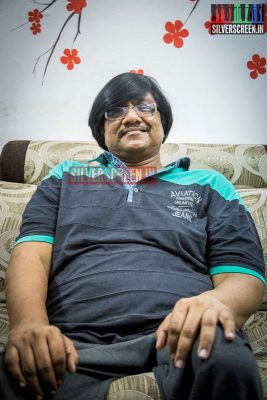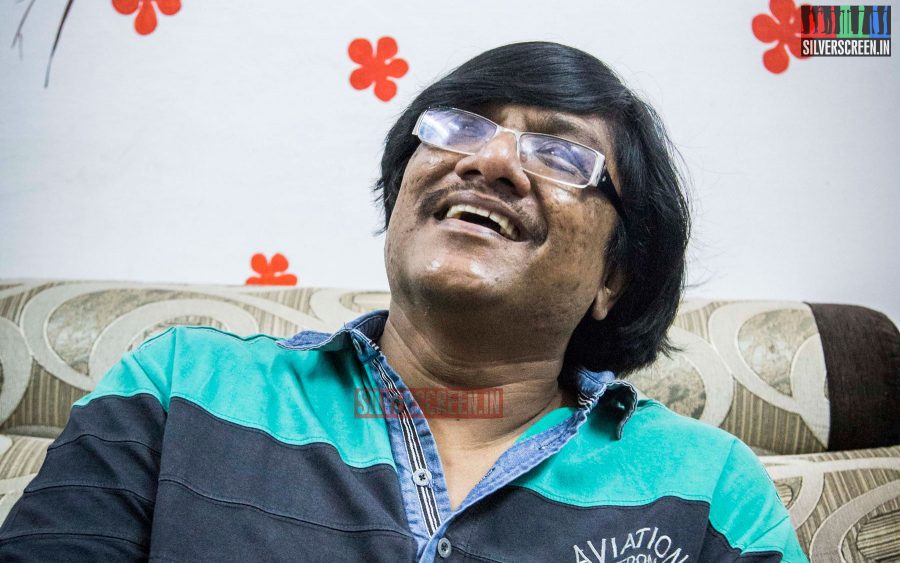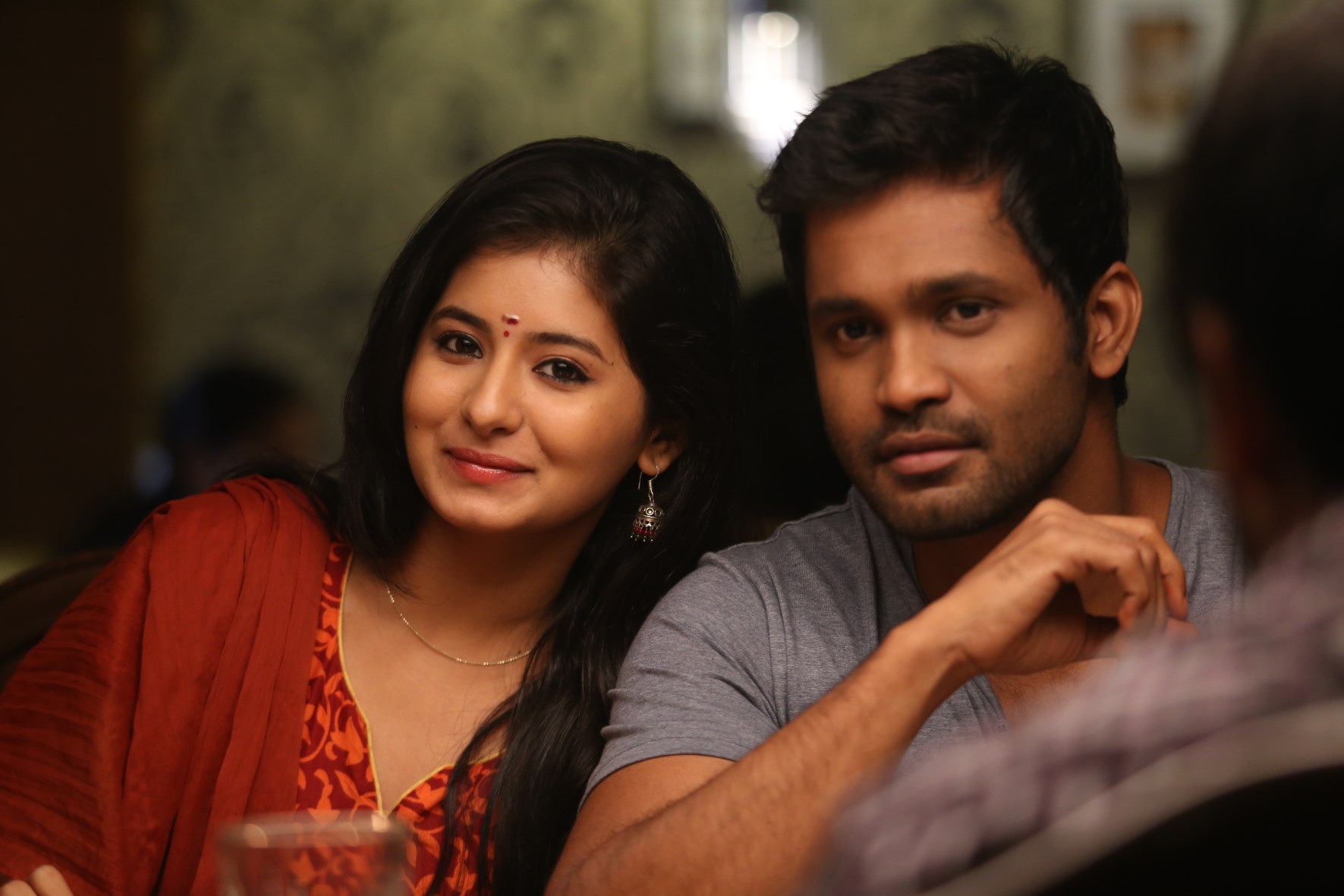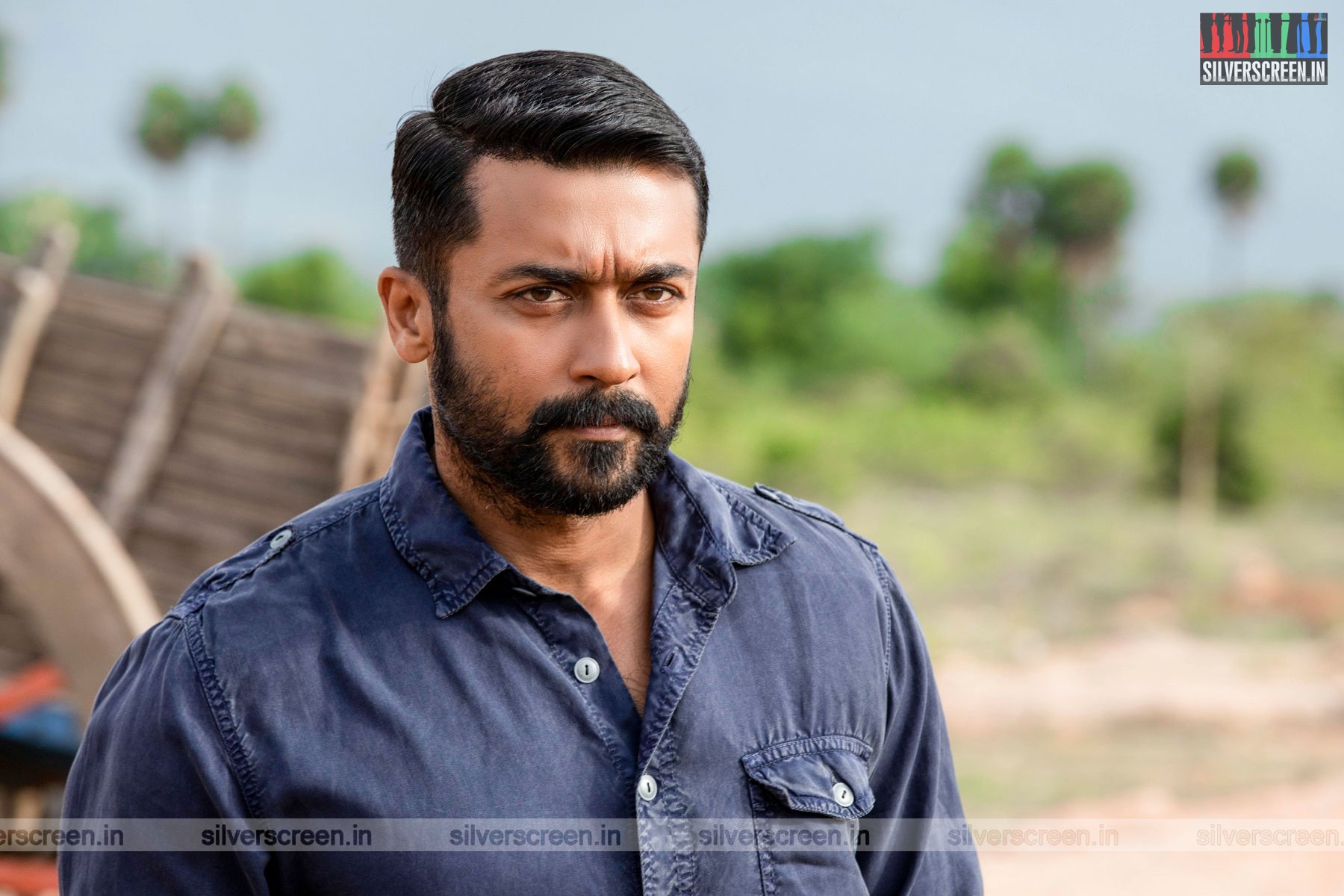
IMG_0488
Quite often, the most interesting perspective about art comes from the gallery. From the audience, the critics, and also, to a large extent, from exponents of other forms of art. Every month, Point of View discusses what cinema means to a celebrity who doesn’t make a living out of it.
*****
Manushya Puthiran, author and editor of the Tamil magazine Uyirmmai, discovered his love for cinema when he watched MGR’s Pallandu Vazhga. MGR, in the movie, would be incredibly considerate to a bunch of prisoners in the film. Manushya Puthiran though, found them a little scary, and held on fast to his mother’s hands. But while walking back home from the theatre, he found himself discussing the movie with his mother. “Why would MGR work for the rehabilitation of prisoners?”
He was offered a convincing answer.
“I wanted to watch more such films,” says the writer.
He was eight then.
*****
Touring Talkies used to be the biggest attraction of Manushya Puthiran’s hometown, Thuvarankurichi. “Also, Sivaji Ganesan’s Thanga Pathakkam reminds me of my childhood filled with books and cinema. I would always remember the movies I watched with my mother and the walks we took after them.”
He also fondly recalls the days – in the 80s – when his family was the only one in the vicinity to own a television. “Over 100 people would assemble in our terrace and we would watch old Tamil films telecast on Rupavahini, a Sri Lankan channel.” It was a golden period, he smiles, “I could watch a three-hour film at a stretch without losing focus!”
*****
When he was studying Mass Communication and Journalism in Thirunelveli, the film festivals held in his college introduced him to world cinema. “Akira Kurosawa’s films left a great impact on me. I loved his vision and the way he treated complexities of life in his films. And, like every other movie-buff, I began devouring Satyajit Ray’s works,” recalls Manushya Puthiran.
Pather Panchali is one of his favourites. “I read the novel after watching the film. Music was treated like a character in Pather Panchali. I could hear it when I was reading the book. It was a beautiful experience.” He also watched a lot of John Abraham’s films during his college days. “His angst and rebellion helped me with my ideology, which reflects in my literary works.”
Manushya Puthiran’s love for Tamil cinema was rekindled when he relocated to Chennai. “That was the time when K Balachander’s brave films were creating a storm here.” He watched Varumaiyin Niram Sivappu and Thaneer Thaneer over and over again. Besides the strong, independent women and biting realism of K Balachander’s movies, Manushya Puthiran was floored by the way his films portrayed the crisis faced by middle-class families then. “Between 1960 and 1980, the principles and ideologies of middle-class families went through a major shift. Other than Balachander, not a lot of filmmakers were able to show the struggles faced by them. Also, he was one among the very few who could do films on individual battles and social issues with equal versatility.”
*****
Manushya Puthiran reckons that the industry didn’t offer many opportunities to filmmakers like Mahendran and Balu Mahendra. “They were not allowed to make movies of their kind. For instance, Azhiyatha Kolangal, a story about three youngsters coming of age, is one of the most important movies in Tamil cinema. But Balu Mahendra couldn’t do more films like that. Towards the end, he was making films like Julie Ganapathi,” he says. He also wishes that director Vasanthabalan could make more films like his Veyil. “Since the box office determines a filmmaker’s destiny, creativity is restrained. That makes me sad.”
Recommended
In recent times, Manushya Puthiran immensely enjoyed watching Pudhupettai, Sathuranga Vettai, Jigarthanda, and Kathai Thiraikathai Vasanam Iyakkam. “I am a fan of Parthiban’s out-of-the-box thinking. It was fascinating to see him explore many aspects of cinema in his last film, despite being a part of the industry.” Mysskin’s Nandhalala was another important film, says Manushya Puthiran. It moved him immensely. “The loneliness of childhood, and the mindset of an abandoned child were depicted commendably in Nandhalala. I loved Pisaasu too, for it showed spirits in good light. I always believe, if there are spirits, they would just be an extension of their former selves. They just live in another plane. Won’t it be fun to have a kind ghost in our lives?”
*****
When he finds time, Manushya Puthiran watches a lot of thrillers. Vettaiyadu Vilaiyadu, according to him, is one of the best thrillers of Tamil cinema. He also often hums songs penned by Vairamuthu, Thamarai and Kannadasan. Lately though, he is addicted to Danga Maari from Anegan. “The voice of Gaana Viji is an authentic Dravidian voice. Very unique.”
*****
And yes, there are a few genres that Manushya Puthiran doesn’t particularly relish. Spiritual, and Hollywood fare. “Spiritual films bring God down to a cheap position. And Hollywood films don’t go with my sensibilities. I appreciate their craft, but not the films.”
*****



